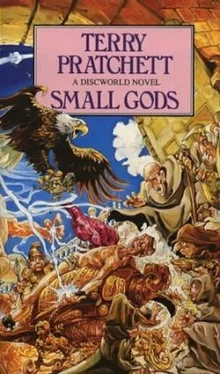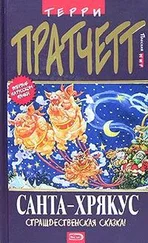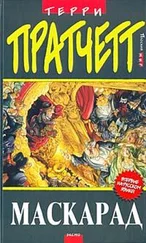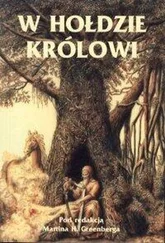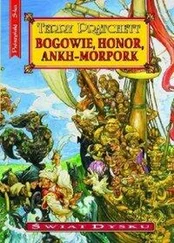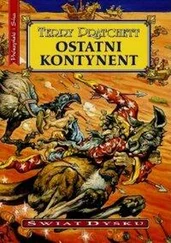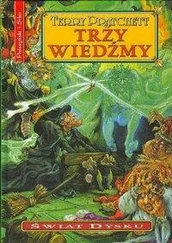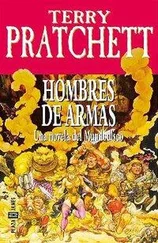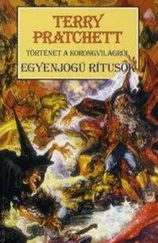Terry Pratchett - Small Gods
Здесь есть возможность читать онлайн «Terry Pratchett - Small Gods» весь текст электронной книги совершенно бесплатно (целиком полную версию без сокращений). В некоторых случаях можно слушать аудио, скачать через торрент в формате fb2 и присутствует краткое содержание. Жанр: Юмористическая фантастика, на английском языке. Описание произведения, (предисловие) а так же отзывы посетителей доступны на портале библиотеки ЛибКат.
- Название:Small Gods
- Автор:
- Жанр:
- Год:неизвестен
- ISBN:нет данных
- Рейтинг книги:4 / 5. Голосов: 1
-
Избранное:Добавить в избранное
- Отзывы:
-
Ваша оценка:
- 80
- 1
- 2
- 3
- 4
- 5
Small Gods: краткое содержание, описание и аннотация
Предлагаем к чтению аннотацию, описание, краткое содержание или предисловие (зависит от того, что написал сам автор книги «Small Gods»). Если вы не нашли необходимую информацию о книге — напишите в комментариях, мы постараемся отыскать её.
Small Gods — читать онлайн бесплатно полную книгу (весь текст) целиком
Ниже представлен текст книги, разбитый по страницам. Система сохранения места последней прочитанной страницы, позволяет с удобством читать онлайн бесплатно книгу «Small Gods», без необходимости каждый раз заново искать на чём Вы остановились. Поставьте закладку, и сможете в любой момент перейти на страницу, на которой закончили чтение.
Интервал:
Закладка:
"How many soldiers?" said Vorbis.
"A bodyguard only. We have been guaranteed safe passage, after all," said Fri'it.
"We have been guaranteed safe passage," said Vorbis. It sounded like a lengthy curse. "And once inside . . . ?"
Fri'it wanted to say: I've spoken to the commander of the Ephebian garrison, and I think he is a man of honor, although of course he is indeed a despicable infidel and lower than the worms. But it was not the kind of thing he felt it wise to say to Vorbis.
He substituted: "We shall be on our guard."
"Can we surprise them?"
Fri'it hesitated. "We?" he said.
"I shall lead the party," said Vorbis. There was the briefest exchange of glances between himself and the secretary. "I . . . would like to be away from the Citadel for a while. A change of air. Besides, we should not let the Ephebians think they merit the attentions of a superior member of the Church. I was just musing as to the possibilities, should we be provoked-”
Fri'it's nervous click was like a whip-crack.
"We have given them our word-”
"There is no truce with unbelievers," said Vorbis.
"But there are practical considerations," said Fri'it, as sharply as he dared. "The palace of Ephebe is a labyrinth. I know. There are traps. No one gets in without a guide."
"How does the guide get in?" said Vorbis.
"I assume he guides himself," said the general.
"In my experience there is always another way," said Vorbis. "Into everything, there is always another way. Which the God will show in his own good time, we can be assured of that."
"Certainly matters would be easier if there was a lack of stability in Ephebe," said Drunah. "It does indeed harbor certain . . . elements."
"And it will be the gateway to the whole of the Turnwise coast," said Vorbis.
"Well-”
"The Djel, and then Tsort," said Vorbis.
Drunah tried to avoid seeing Fri'it's expression.
"It is our duty," said Vorbis. "Our holy duty. We must not forget poor Brother Murduck. He was unarmed and alone."
Brutha's huge sandals flip-flopped obediently along the stone-flagged corridor toward Brother Nhumrod's barren cell.
He tried composing messages in his head. Master, there's a tortoise who says-Master, this tortoise wants-Master, guess what, I heard from this tortoise in the melons that-
Brutha would never have dared to think of himself as a prophet, but he had a shrewd idea of the outcome of any interview that began in this way.
Many people assumed that Brutha was an idiot. He looked like one, from his round open face to his splayfeet and knock-ankles. He also had the habit of moving his lips while he thought deeply, as if he was rehearsing every sentence. And this was because that was what he was doing. Thinking was not something that came easily to Brutha. Most people think automatically, thoughts dancing through their brains like static electricity across a cloud. At least, that's how it seemed to him. Whereas he had to construct thoughts a bit at a time, like someone building a wall. A short lifetime of being laughed at for having a body like a barrel and feet that gave the impression that they were about to set out in opposite directions had given him a strong tendency to think very carefully about anything he said.
Brother Nhumrod was prostrate on the floor in front of a statue of Om Trampling the Ungodly, with his fingers in his ears. The voices were troubling him again.
Brutha coughed. He coughed again.
Brother Nhumrod raised his head.
"Brother Nhumrod?" said Brutha.
"What?"
"Er . . . Brother Nhumrod?"
"What?"
Brother Nhumrod unplugged his ears.
"Yes?" he said testily.
"Um. There's something you ought to see. In the . . . in the garden. Brother Nhumrod?"
The master of novices sat up. Brutha's face was a glowing picture of concern.
"What do you mean?" Brother Nhumrod said.
"In the garden. It's hard to explain. Um. I found out . . . where the voices were coming from, Brother Nhumrod. And you did say to be sure and tell you."
The old priest gave Brutha a sharp look. But if ever there was a person without guile or any kind of subtlety, it was Brutha.
Fear is strange soil. Mainly it grows obedience like corn, which grows in rows and makes weeding easy. But sometimes it grows the potatoes of defiance, which flourish underground.
The Citadel had a lot of underground. There were the pits and tunnels of the Quisition. There were cellars and sewers, forgotten rooms, dead ends, spaces behind ancient walls, even natural caves in the bedrock itself.
This was such a cave. Smoke from the fire in the middle of the floor found its way out through a crack in the roof and, eventually, into the maze of uncountable chimneys and light-wells above.
There were a dozen figures in the dancing shadows. They wore rough hoods over nondescript clothes-crude things made of rags, nothing that couldn't easily be burned after the meeting so that the wandering fingers of the Quisition would find nothing incriminating. Something about the way most of them moved suggested men who were used to carrying weapons. Here and there, clues. A stance. The turn of a word.
On one wall of the cave there was a drawing. It was vaguely oval, with three little extensions at the top-the middle one slightly the largest of the three-and three at the bottom, the middle one of these slightly longer and more pointed. A child's drawing of a turtle.
"Of course he'll go to Ephebe," said a mask. "He won't dare not to. He'll have to dam the river of truth, at its source."
"We must bail out what we can, then," said another mask.
"We must kill Vorbis!"
"Not in Ephebe. When that happens, it must happen here. So that people will know. When we're strong enough."
"Will we ever be strong enough?" said a mask. Its owner clicked his knuckles nervously.
"Even the peasants know there's something wrong. You can't stop the truth. Dam the river of truth? Then there are leaks of great force. Didn't we find out about Murduck? Hah! 'Killed in Ephebe,' Vorbis said."
"One of us must go to Ephebe and save the Master. If he really exists."
"He exists. His name is on the book."
"Didactylos. A strange name. It means Two-Fingered, you know."
"They must honor him in Ephebe."
"Bring him back here, if possible. And the Book."
One of the masks seemed hesitant. His knuckles clicked again.
"But will people rally behind . . . a book? People need more than a book. They're peasants. They can't read."
"But they can listen!"
"Even so . . . they need to be shown . . . they need a symbol . . ."
"We have one!"
Instinctively, every masked figure turned to look at the drawing on the wall, indistinct in the firelight but graven on their minds. They were looking at the truth, which can often impress.
"The Turtle Moves!"
"The Turtle Moves!"
"The Turtle Moves!"
The leader nodded.
"And now," he said, "we will draw lots . . ."
The Great God Om waxed wroth, or at least made a spirited attempt. There is a limit to the amount of wroth that can be waxed one inch from the ground, but he was right up against it.
He silently cursed a beetle, which is like pouring water onto a pond. It didn't seem to make any difference, anyway. The beetle plodded away.
He cursed a melon unto the eighth generation, but nothing happened. He tried a plague of boils. The melon just sat there, ripening slightly.
Just because he was temporarily embarrassed, the whole world thought it could take advantage. Well, when Om got back to his rightful shape and power, he told himself, Steps would be Taken. The tribes of Beetles and Melons would wish they'd never been created. And something really horrible would happen to all eagles. And . . . and there would be a holy commandment involving the planting of more lettuces . . .
Читать дальшеИнтервал:
Закладка:
Похожие книги на «Small Gods»
Представляем Вашему вниманию похожие книги на «Small Gods» списком для выбора. Мы отобрали схожую по названию и смыслу литературу в надежде предоставить читателям больше вариантов отыскать новые, интересные, ещё непрочитанные произведения.
Обсуждение, отзывы о книге «Small Gods» и просто собственные мнения читателей. Оставьте ваши комментарии, напишите, что Вы думаете о произведении, его смысле или главных героях. Укажите что конкретно понравилось, а что нет, и почему Вы так считаете.
